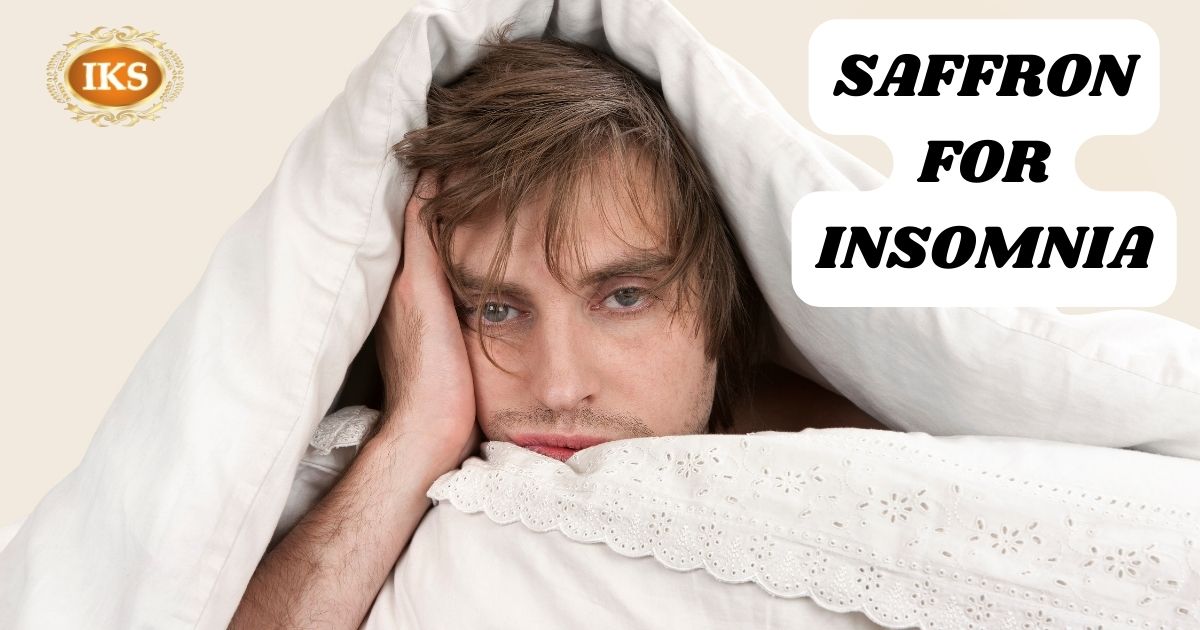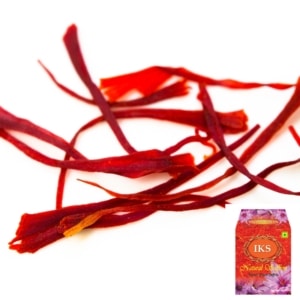Saffron for Insomnia: A Natural Spice for Restful Sleep
Saffron for Insomnia – Insomnia, the inability to fall asleep or stay asleep, can have a significant impact on one’s quality of life.
Sleep disorders affect millions of people worldwide, leading to fatigue, irritability, and a decline in overall well-being.
While there are various treatment options available, many individuals seek natural remedies to promote better sleep.
Saffron (Kesar), a spice derived from the Crocus sativus flower, has gained attention for its potential benefits in combating insomnia.
In this article, we explore the potential of saffron as a natural remedy for insomnia and delve into its mechanisms, effectiveness, and safety.
1. Introduction: Understanding Insomnia
Insomnia is a sleep disorder characterized by difficulty falling asleep, staying asleep, or experiencing non-restorative sleep.
It can be transient or chronic, affecting individuals of all ages. Insomnia often stems from underlying factors such as stress, anxiety, depression, or medical conditions.
Inadequate sleep can lead to daytime drowsiness, impaired cognitive function, and mood disturbances.
2. What is Saffron?
Saffron, known scientifically as Crocus sativus, is a spice derived from the flower’s dried stigma.
It has a rich history dating back thousands of years and is widely used in culinary traditions, natural medicine, and even religious ceremonies.
The distinct aroma, vibrant color, and delicate flavor make saffron a prized ingredient in various cuisines worldwide.
3. The History and Cultural Significance of Saffron
Saffron’s origins can be traced back to ancient civilizations, with evidence of its cultivation in regions like Kashmir (India), Persia (modern-day Iran) and Greece.
Throughout history, saffron has been highly valued for its medicinal properties and has been used to alleviate various ailments.
It has also symbolized luxury, prosperity, and beauty in many cultures.
4. Saffron’s Active Components
The bioactive compounds found in saffron are responsible for its potential health benefits.
These include crocin, crocetin, safranal, and picrocrocin. Crocin and crocetin contribute to saffron’s vibrant color and possess antioxidant properties.
Safranal, known for its aroma, may have mood-enhancing effects, while picrocrocin adds a distinct bitter taste to saffron.
5. How Saffron Affects Sleep
Saffron’s impact on sleep is believed to be linked to its influence on neurotransmitters in the brain.
It may modulate the levels of serotonin, a neurotransmitter that regulates mood and sleep-wake cycles.
Additionally, saffron’s antioxidant properties may help reduce oxidative stress, which can contribute to sleep disturbances.
6. Research Studies on Saffron and Insomnia
Scientific research exploring saffron’s effects on insomnia is still in its early stages, but preliminary studies show promising results.
In a randomized controlled trial involving individuals with primary insomnia, saffron supplementation demonstrated improvements in sleep quality and duration compared to a placebo group.
7. The Benefits of Saffron for Sleep Quality
Saffron’s potential benefits for sleep quality extend beyond addressing insomnia symptoms.
It may help reduce the time taken to fall asleep, increase the duration of sleep, and enhance overall sleep efficiency.
Furthermore, saffron has been associated with improvements in mood, anxiety reduction, and a sense of relaxation, which can contribute to better sleep.
8. Saffron as an Adjunct Therapy
While saffron shows promise as a natural remedy for insomnia, it is essential to approach it as an adjunct therapy rather than a standalone solution.
Incorporating saffron into a comprehensive approach that includes good sleep hygiene, stress management techniques, and healthy lifestyle habits can optimize its effectiveness.
9. Recommended Dosage of Saffron
Determining the appropriate dosage of saffron for insomnia requires further research.
As a general guideline, a daily dosage of 15-30 milligrams of saffron extract divided into two or three doses is often suggested.
However, it is crucial to consult with a healthcare professional before starting any new supplements.
10. Possible Side Effects and Precautions
In general, saffron is considered safe when used in moderate amounts as a spice or in supplement form.
However, excessive consumption of saffron may lead to adverse effects such as digestive issues or allergic reactions.
It is important to follow recommended dosages and consult a healthcare professional if you have any underlying medical conditions or are taking medications.
11. Other Sleep-Enhancing Strategies
In addition to saffron, there are several other strategies that can promote better sleep:
Establishing a consistent sleep schedule
Creating a soothing sleep environment
Practicing relaxation techniques, such as meditation or deep breathing
Avoiding stimulants, including caffeine and electronic devices, before bedtime
Engaging in regular physical activity
12. Lifestyle Changes to Promote Better Sleep
Making positive changes to your lifestyle can have a significant impact on sleep quality:
Managing stress through techniques like mindfulness or journaling
Limiting daytime napping
Avoiding large meals, caffeine, and alcohol close to bedtime
Establishing a bedtime routine to signal the body that it’s time to sleep
Creating a comfortable sleep environment with optimal temperature, lighting, and noise levels
13. Conclusion
Saffron, a spice with a rich history and cultural significance, shows promise as a natural remedy for insomnia.
While further research is needed to fully understand its mechanisms and dosages, preliminary studies suggest that saffron may enhance sleep quality and duration.
However, it is important to approach saffron as an adjunct therapy and incorporate it into a comprehensive approach to sleep improvement.















